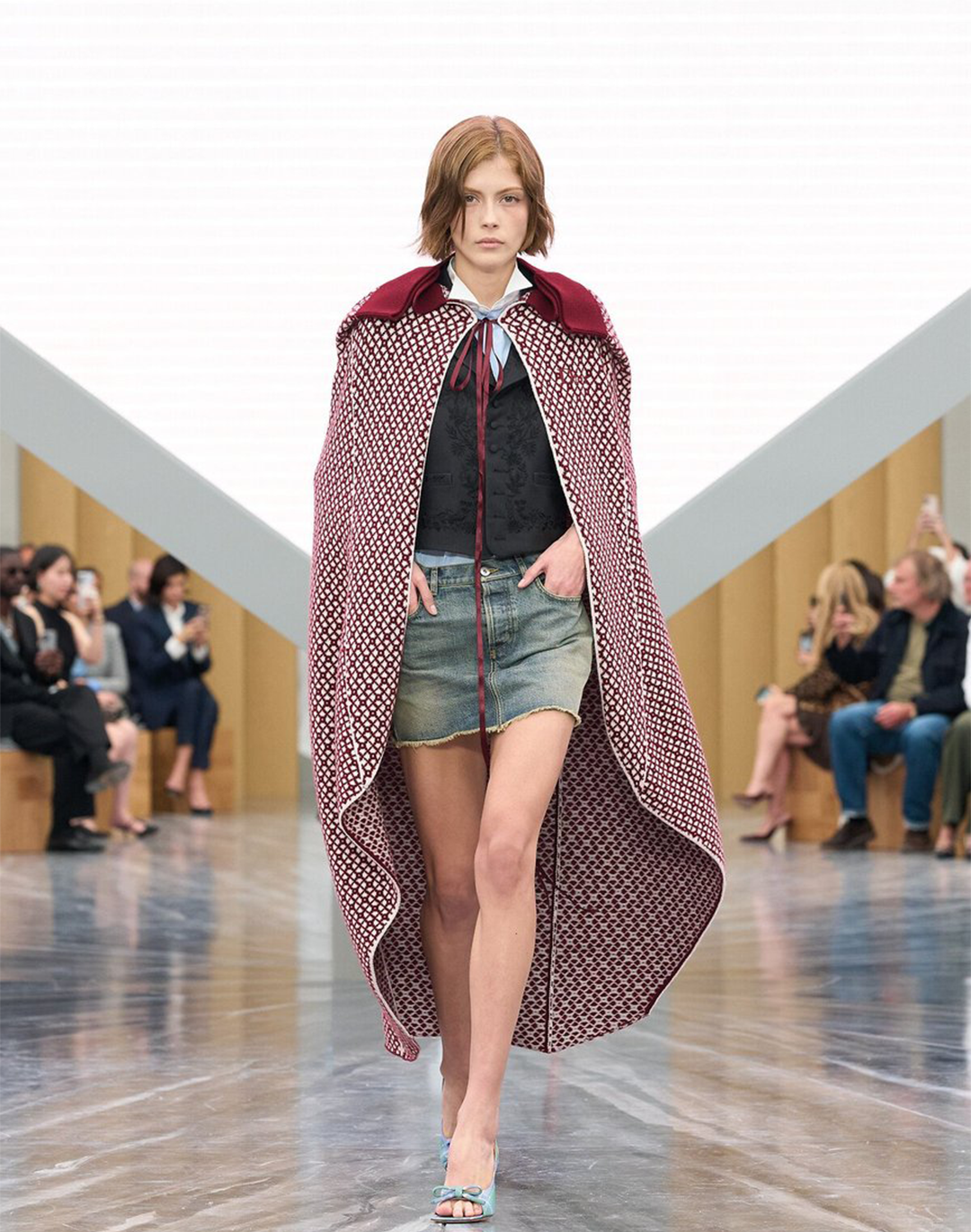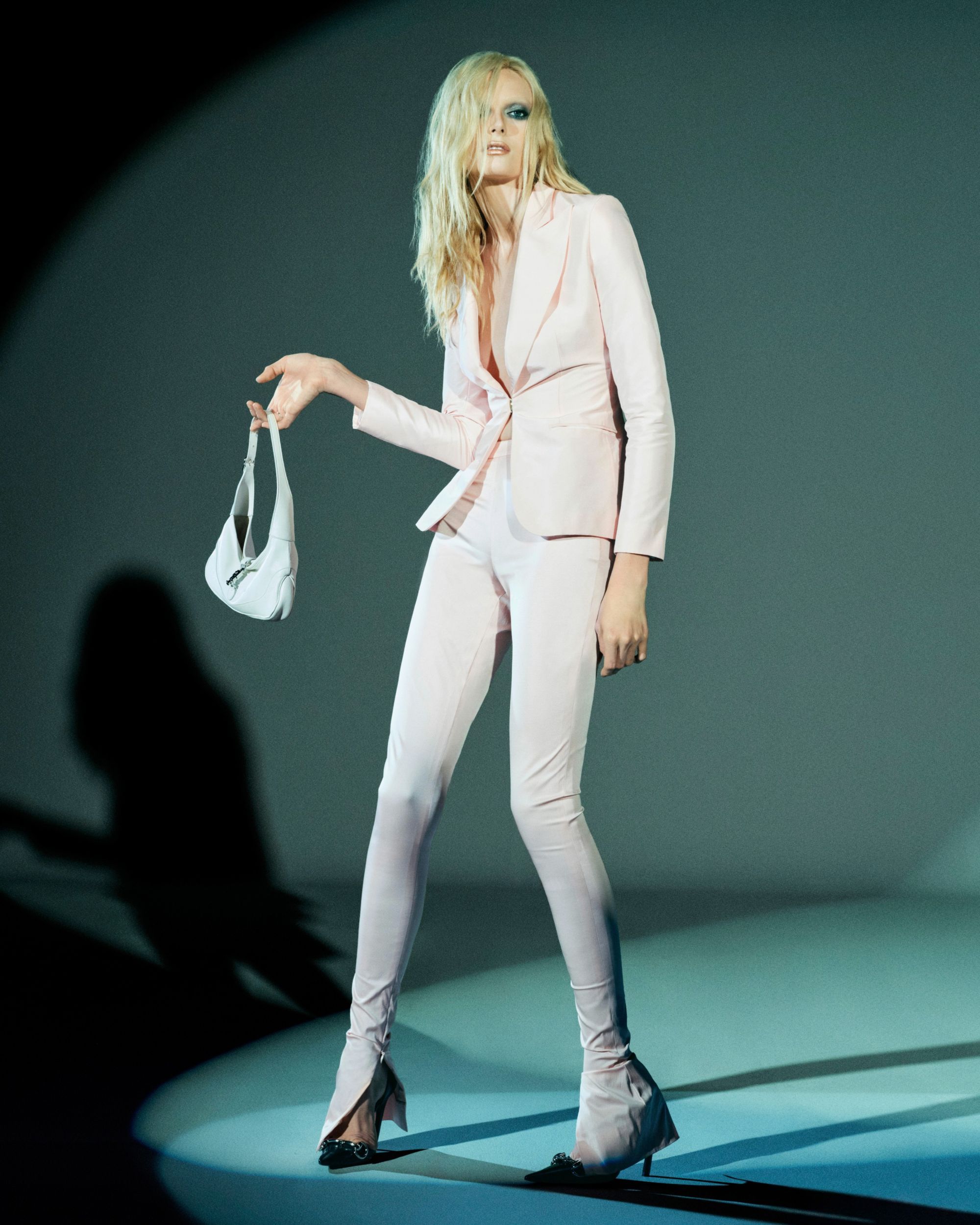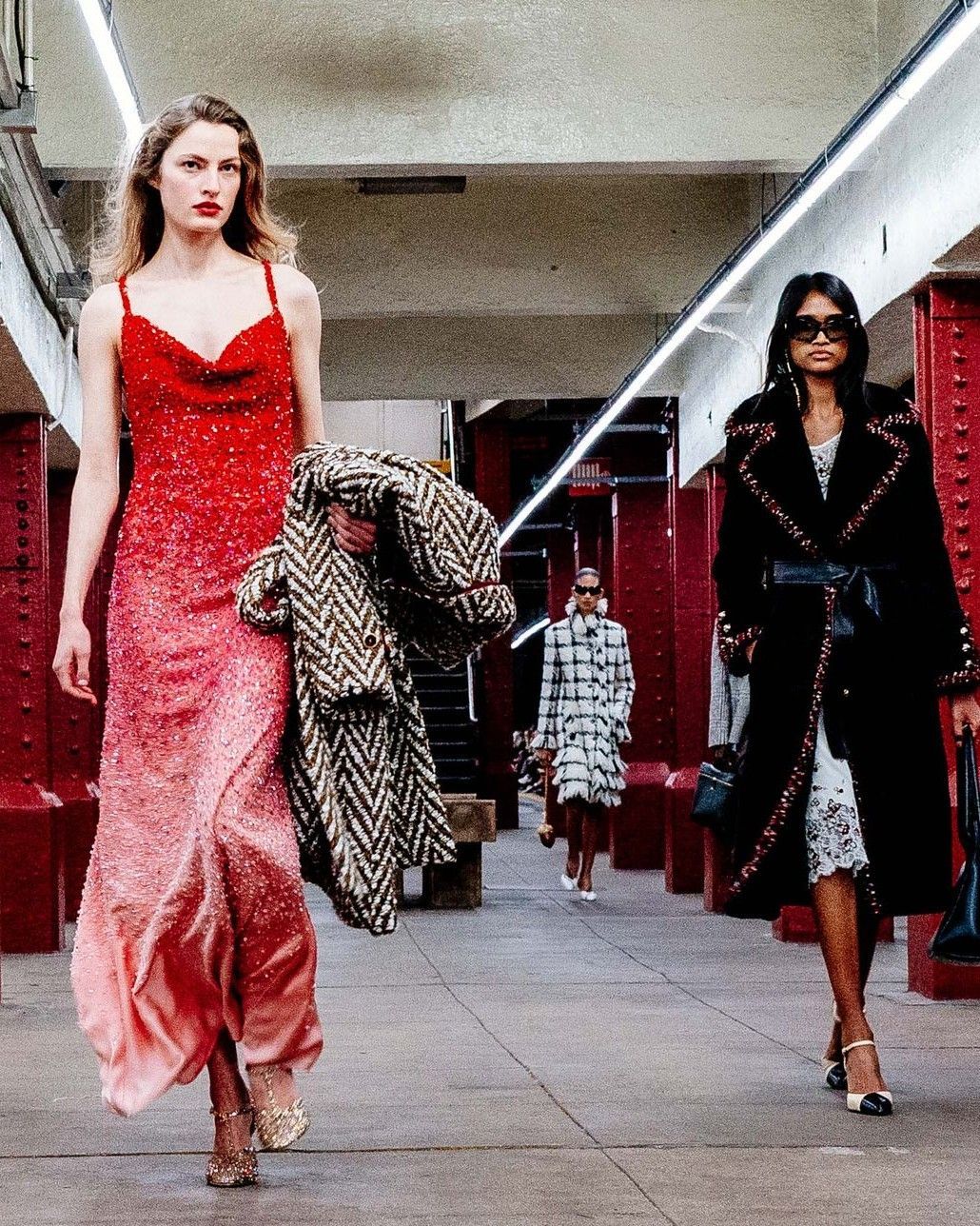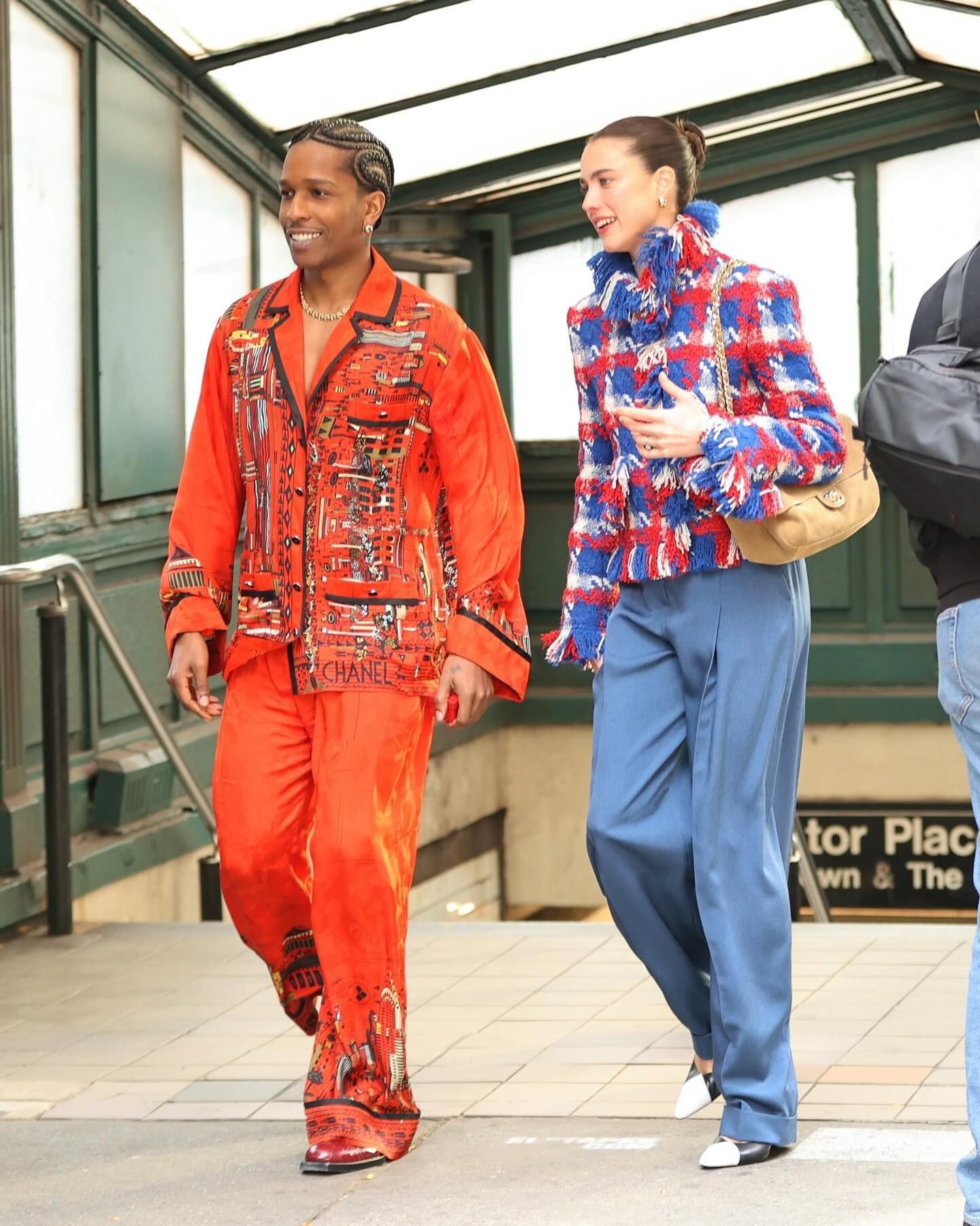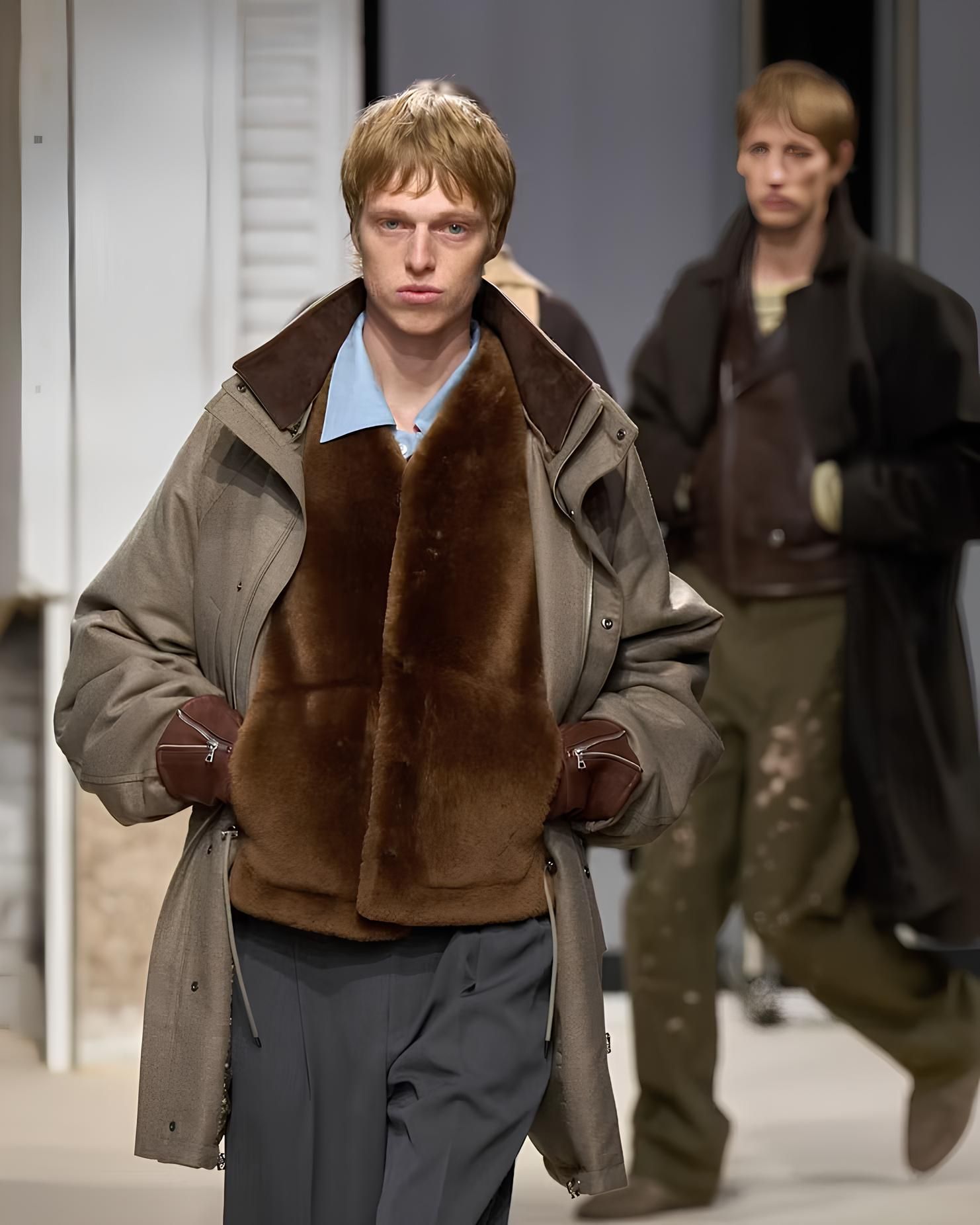
The eternal, innocent lolitas of Miu Miu Disinformation, youth and truth seem to be Miuccia Prada's first thought
Miuccia Prada is concerned about the state of the world. Both in her latest Prada show and for Miu Miu's SS25 collection, the philosophical core of her work revolved around the theme of post-truth, the fragmentation of information (and thus the reality we perceive), which arises from delegating to machines tasks that were once performed by humans. If alienation and the de-contextualization of the past in the digital age were the themes for Prada, at Miu Miu, the reaction to a world increasingly submerged by noise, spam, and clickbait from the media is a return to the basic building blocks of dressing. It is a return to childhood as a world of innocence and uniformity, but also a return to instinct, to the genius intuition that suddenly turns things around and gives them character by modifying the perspective in which they are presented. Childhood is unawareness, early youth is the age of simple truth, adulthood is the age of disinformation imposed on us and that we impose on others by dissimulating ourselves – is it the naivety of the world and art that Miuccia Prada misses? Or is she telling us that the identity we cling to as adults is a mystification, even self-imposed? Or perhaps it is the instinct that can tell us things that a world, now too opaque due to rhetoric and too vast due to mass media, hides from us? What Mrs. Prada brought to the runway were not eternal children but rather women who, across every age, claim a prerogative of uniqueness through an instinct that must be trusted, more aware but still as candid as adolescents.
The show represented this theme through a new artistic collaboration, this time with Goshka Macuga, whose contribution extended not only to the runway but also to the installation presented at the Palais d'Iéna during Art Basel Paris 2024. During the show, Macuga's contribution was expressed through the film and set design The Truthless Times, a project that includes the production of a printed newspaper and a narrative film, both focused on the themes of disinformation and media manipulation that alter our perception of truth. While the FW24 collection focused on clothing that reflected lived experiences, the collection seen yesterday starts from early youth, to be interpreted as a moment of innocence and truth derived from an absolute connection with oneself, a clear notion of things. This phase of life, before the deception and duplicity of adulthood come into play, is manifested through clothing that, in itself, reflects clarity and precision and offers various foundations for building a complete identity. The first look is a white dress: what could be more innocent, yet also more essential as the basis for an identity that is also a way of dressing?
The concept is also reflected in the materiality, as this season sees the brand collaborating with Petit Bateau, the historic French brand specializing in children's clothing. A partnership that leads to the reinterpretation of classic childhood garments, adapted this time for adults as well, offering both practical functionality and the unequivocal clarity of an archetype – a secure starting point beyond any doubt. But something intervenes: chemisette dresses are lowered, folded, and twisted around the torso; sweaters are transformed into knotted tops, shirts are worn askew. It’s instinct, still childlike, that explores in order to explore itself – working on the outside to discern the inside. But these and other transformations, like silk garments that appear to be made of nylon, reflect through the manipulation of clothes and materials the theme of manipulation and dissimulation introduced by Macuga’s installation. When information is manipulated, partial, biased, even reality loses its appearance – after all, information is perception. To emphasize the dual nature inherent in things, there are, in contrast, classic pieces representing Miu Miu's known aesthetic. And here, too, the question arises: what is more Miu Miu, the uniform we already know or the new, repurposed element? The play between truth and fiction continues, as can be seen, on multiple levels.
One of these levels is the cast – if last season we had "real women," now we see familiar faces from the worlds of cinema, music, and fashion, including Charlotte Cardin, Alexa Chung, Willem Dafoe, Cara Delevingne, Noen Eubanks, and even a resurgent Hilary Swank. These figures, actors or otherwise, professionally take on the task of representing alternative truths or, rather, making fiction seem real and vice versa. The answer to everything, offered almost from the start, is that instinctuality to be found in the pure awareness of early youth, still untouched by corruption, and to be followed as the only true space where disinformation and noise do not reach. As mentioned, Miu Miu's women (and men, as Dafoe closed the show) don't need to be eternal children or adolescents but are to be discovered at the mysterious intersection of those who approach the world without being tainted by it, though with a touch of harmless mischief: eternal, innocent Lolitas.



























































































































